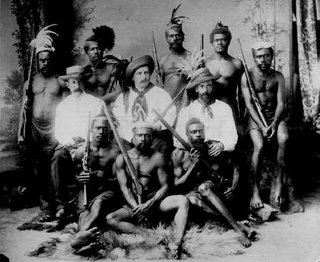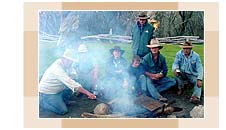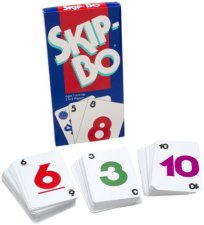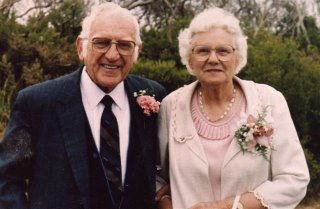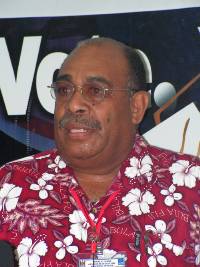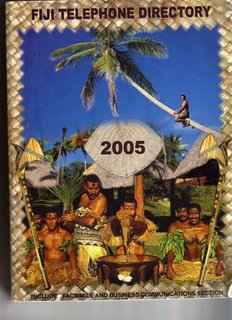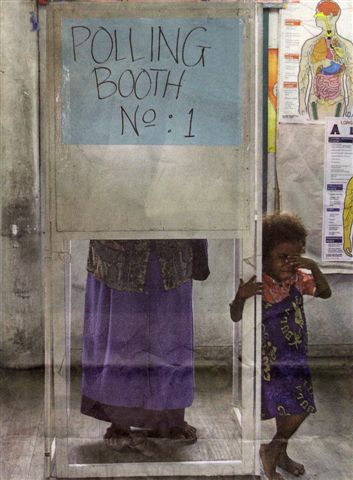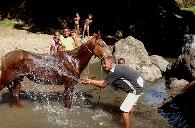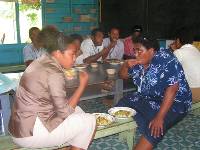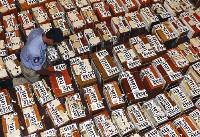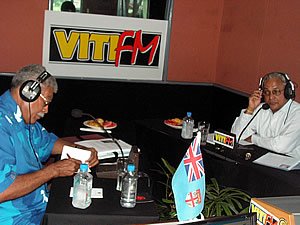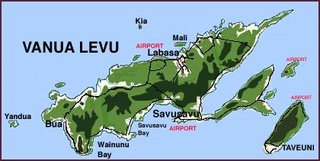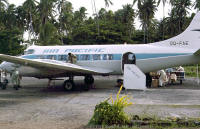
Tui Macuata, Ratu Aisea Katonivere has been appointed as a Senator to represent Macuata. He is a conservationist, involved in the preservation of the reefs along the Macuata coastline. Here is an article written about him from Ocean Voices.
Conservation Convert" Crusades for Marine Protections in Fiji
Ratu Aisea Katonivere, a self-described “conservation convert,” is the paramount chief of the province of Macuata on Fiji’s second largest island of Vanua Levu. He is also the Roko Tui Macuata (Roko Tui signifying a government position), responsible for Fijian administration in the province. His ‘kingdom’ comprises 110,000 people living in 117 coastal and inland villages, including Labasa, one of the largest towns in Fiji.
At first glance, it seems there is nothing significant about the province; like many others in western Fiji, its urban inhabitants rely heavily on the sugar and forestry industries while most indigenous peoples still rely on subsistence farming and fishing to get by. The pride and joy of the Macuata province is the Great Sea Reef, locally known as Cakaulevu, which provides fishing grounds for the roughly 10,000 indigenous people who live in villages scattered along the coastline.
Ratu Aisea tells us that his “conversion” came about three years ago, when he heard that the Great Sea Reef, covering an area of 78,242 square miles, is the third largest barrier reef in the world. Meeting with SeaWeb staff in Fiji, he said, “For us it was just the Cakaulevu – a reef where our ancestors fished and where people from all over Fiji now fish. Knowing that it was the third largest barrier reef changed all that – something had to be done to protect this great gift from God.”
“At district and provincial meetings, I heard stories from my people about the difficulties of catching fish – how the fish are getting smaller, how they have to travel long distances to get a good catch and how fishermen from as far away as Viti Levu were fishing illegally in our traditional fishing grounds,” Ratu Aisea explains. Direct threats to the Great Sea Reef include overfishing, poaching by illegal fishers, use of small mesh fishing nets and use of the coastal duva plant as a fish poison. Sedimentation in near-shore areas resulting from erosion and upland activities, dredging of sand for construction, drainage of ballast waters near the reef and untreated waste water discharge from facilities in and near Labasa are also endangering Macuata’s most precious ocean resource.
To address the problems, Ratu Aisea approached the Fiji Locally Managed Marine Area Network (FLMMA) and the Word Wildlife Fund’s Fiji program office seeking advice on protecting the Great Sea Reef. With their support he called a meeting in the district of Macuata. “At this meeting, my district chiefs and I realized that we would have to take the first steps towards conservation in our district,” explains Ratu Aisea. “The meeting was good because we were able to discuss the activities that were threatening our fishing grounds and reefs, and what we could do about them.” As a result of the meeting, four other chiefs joined with him to establish the 32-square mile Macuata Marine Protected Area Network.
Ratu Aisea, his four allies and their people developed a management plan for the MPA and decided to use an old war cry, Siga Damu a Vanua, to garner support for their conservation network. “We use the war cry to rally us in our fight to look after what God has given us – so that we have something to give to the future generations of Macuata,” said Ratu Aisea, kicking off a conservation crusade in his province and greater Fiji….
In a region where marine resources are constantly under pressure, hope remains in the province of Macuata and other provinces like it, hope that someday Pacific peoples will realize that their “only chance for the future is through conservation.”
Thanks to Amelia (Mia) Makutu, Asia Pacfic Program Associate, for her contributions to this Ocean Voices piece.
